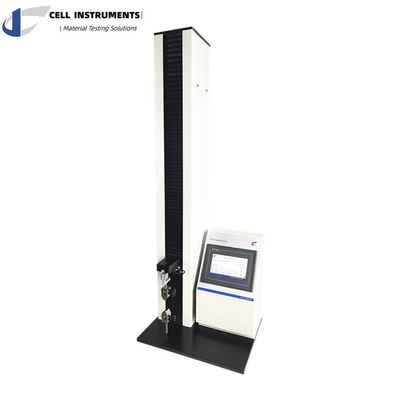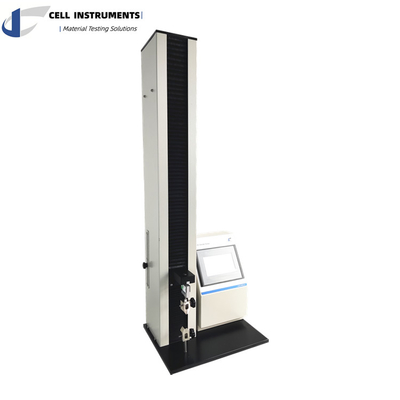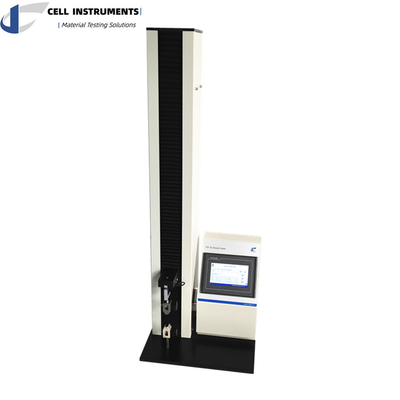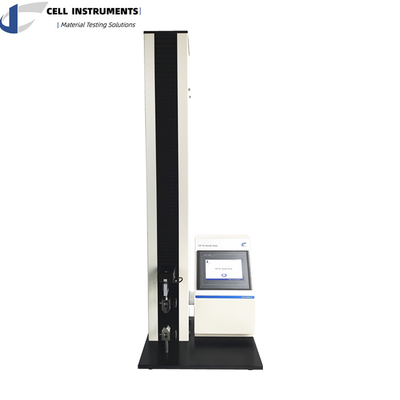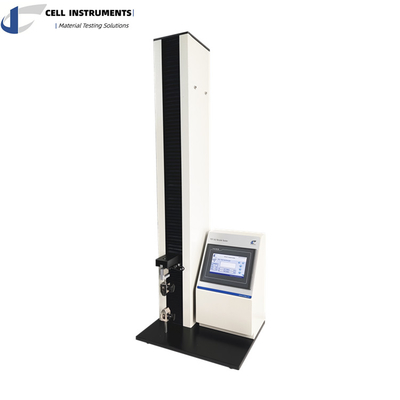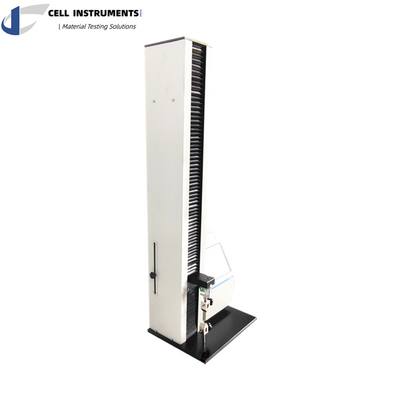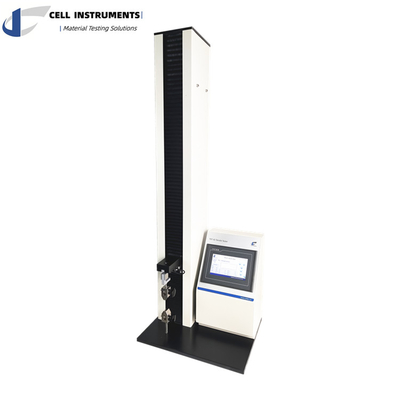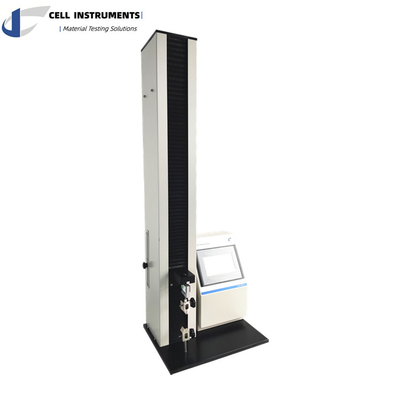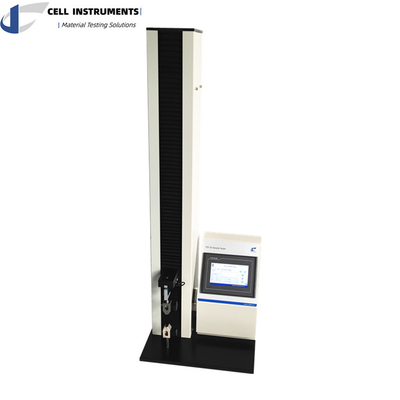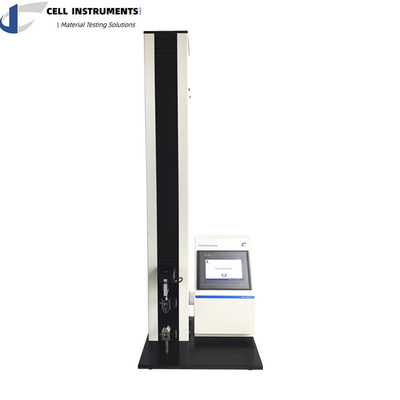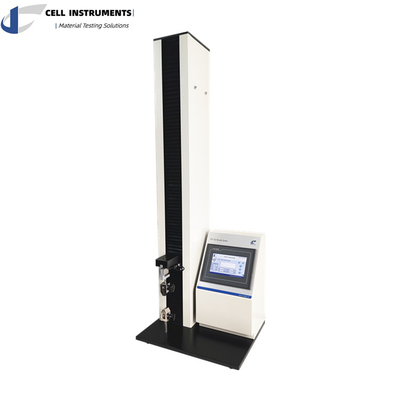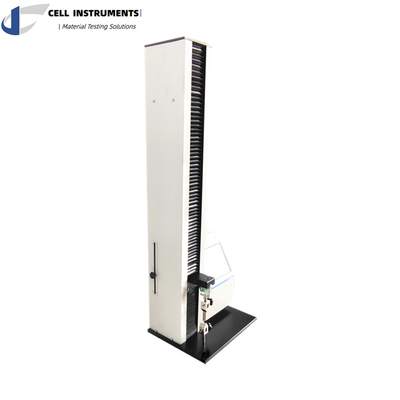Tensile And Pull Testing Machine Plastic Film Pull Force Testing Equipment ASTM D882 Testing Machine

Contact me for free samples and coupons.
WhatsApp:0086 18588475571
Wechat: 0086 18588475571
Skype: sales10@aixton.com
If you have any concern, we provide 24-hour online help.
x| Test Range | 0-500N (or 50N, 100N, 200N, Etc) | Stroke | 800mm (customizable For Other Strokes) |
|---|---|---|---|
| Test Speed | 1~500mm/min | Displacement Accuracy | 0.01mm |
| Accuracy | 0.5% Full Scale | Sample Width | 27mm (optional Width Available) |
| Control | PLC And HMI Screen | Data Output | Microprinter (optional), RS232 (optional) |
Tensile And Pull Testing Machine Plastic Film Pull Force Testing Equipment ASTM D882 Testing Machine
![]()
Introduction to the Tensile and Pull Testing Machine
The Tensile and Pull Testing Machine is an essential instrument in the material testing industry, especially for evaluating the mechanical properties of flexible materials such as plastic films, laminates, and other substrates. These machines are crucial in various industries, including packaging, food, medicine, beverages, automotive, aerospace, and electronics. The primary function of the Tensile and Pull Testing Machine is to determine the tensile strength, elongation, and bonding properties of materials under controlled tension, providing vital data for product development, quality control, and industry compliance.
The machine operates under precise testing protocols, ensuring reliable and repeatable results. With advanced features such as PLC control and HMI touch screen operation, the Tensile and Pull Testing Machine is optimized for flexibility, speed, and accuracy. It meets various industry standards, including ASTM D882, ISO 527, and ASTM D3759, making it the ideal choice for laboratories and manufacturers in need of high-quality testing solutions.
Key Features of the Tensile and Pull Testing Machine
-
Precision and Accuracy
The Tensile and Pull Testing Machine utilizes a precision ball lead screw mechanism, ensuring consistent and accurate displacement and speed control. With an adjustable test speed ranging from 1 to 500mm/min, the machine allows for customizable test conditions based on the specific requirements of different materials. -
User-Friendly Interface
Equipped with a 7-inch TFT touch screen, the machine offers a user-friendly interface for easy operation. The HMI (Human-Machine Interface) ensures smooth navigation through the test settings and data analysis. -
Enhanced Control and Customization
The machine is controlled via PLC (Programmable Logic Controller), allowing for efficient functioning and precise adjustments. The PLC control is integrated with the HMI, giving users the ability to monitor and modify test parameters effortlessly. -
Versatility in Testing
The Tensile and Pull Testing Machine supports various tests, including break strength, elongation, seal strength, peel strength (90° and 180°), and more. It is compatible with different fixtures, making it adaptable for testing a wide range of materials and configurations. -
Data Output and Communication
The Tensile and Pull Testing Machine features a microprinter for on-site results printing and an RS 232 port for seamless data communication. Additionally, it supports professional software for detailed data analysis and storage, making it an excellent tool for advanced research and development.
Why the Tensile and Pull Testing Machine is Crucial for Quality Inspection
1. Material Strength Assessment
Understanding the tensile strength of a material is essential to ensure its durability and reliability in real-world applications. The Tensile and Pull Testing Machine helps manufacturers assess the maximum stress a material can withstand before failure, providing critical data for design specifications.
2. Elongation Properties
The elongation of a material—its ability to stretch before breaking—is a key property in applications where flexibility is required, such as in packaging films and flexible laminates. This testing machine allows for precise measurement of elongation, ensuring that materials meet the required standards for flexibility and performance.
3. Adhesion and Bond Strength
In many cases, flexible laminates consist of multiple layers that must bond effectively. The Tensile and Pull Testing Machine measures the adhesion strength between layers, ensuring that the material maintains its structural integrity under stress.
4. Compliance with Industry Standards
The machine complies with various international standards, such as ASTM D3330, ASTM D3759, ISO 527, and ASTM F904. This ensures that test results are accurate, reliable, and internationally recognized, making the machine an indispensable tool for industries that require strict adherence to quality standards.
Main Parameters of the Tensile and Pull Testing Machine
| Test Range | 0-500N (or 50N, 100N, 200N, etc) |
| Stroke | 800mm (customizable for other strokes) |
| Test Speed | 1~500mm/min |
| Displacement Accuracy | 0.01mm |
| Accuracy | 0.5% Full Scale |
| Sample Width | 27mm (optional width available) |
| Control | PLC and HMI Screen |
| Data Output | Microprinter (optional), RS232 (optional) |
Related Standards
To ensure the accuracy and reliability of the test results, the Tensile and Pull Testing Machine meets the following industry standards:
- ASTM D3330: Standard Test Method for Peel Adhesion of Pressure-Sensitive Tape
- ASTM D3759: Standard Test Method for Tensile Strength and Elongation of Pressure-Sensitive Tapes
- ISO 527: Plastics - Determination of Tensile Properties
- ASTM F904: Standard Test Method for Comparison of Bond Strength or Ply Adhesion of Similar Laminates Made from Flexible Materials
These standards guide the testing procedures, ensuring that the machine produces accurate, reproducible results that comply with global industry expectations.
Applications of the Tensile and Pull Testing Machine
The Tensile and Pull Testing Machine is widely used across multiple industries, including:
- Packaging: Testing the tensile strength and elongation of films, foils, and other packaging materials.
- Food and Beverage: Ensuring that packaging materials maintain integrity under tension.
- Pharmaceuticals: Verifying the strength of seals in medical and pharmaceutical packaging.
- Automotive and Aerospace: Testing materials used in high-performance applications, ensuring they meet rigorous safety and durability standards.
- Electronics: Assessing the durability of flexible components and packaging materials used in electronic devices.
Conclusion: Why Choose the Tensile and Pull Testing Machine?
The Tensile and Pull Testing Machine is an invaluable tool for manufacturers, laboratories, and research institutions. Whether you're testing flexible packaging materials, laminates, or other substrates, this machine provides accurate and reliable data to help ensure your products meet the highest standards of performance. With its precision, versatility, and compliance with industry regulations, the Tensile and Pull Testing Machine is an essential investment for quality control, product development, and compliance testing.
![]()



